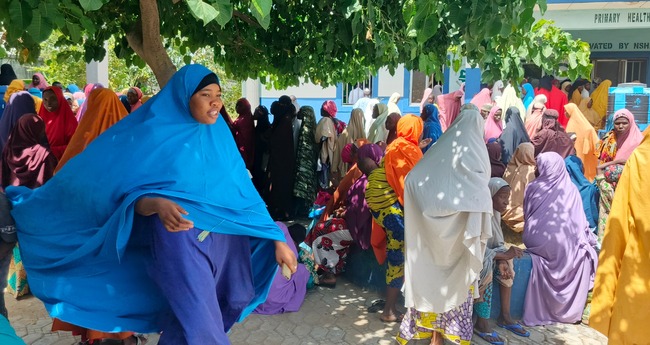The proposed Nigeria Agricultural Extension Services Bill, which has passed through first reading on the floor of the Senate, has received commendations from the Minister of State for Agriculture and Food Security, Senator Aliyu Abdullahi.
The bill when passed and signed into law, will be an additional to support a sustainable and resilient agricultural system in Nigeria.
Senator Abdullahi while speaking at technical update meeting held in Abuja to review stakeholders’ feedback on the proposed bill and further fine-tune it, noted that with about 70 per cent of the population involved in agriculture, it is important to ensure they receive the kind of technical support they need to be able to achieve optimal outputs and good income.
The Minister who declared that this is where Extension Agents become very important, stressed that having the right extension delivery system legislation will boost sustainable and resilient agriculture in the country.
“Our visionary President, His Excellency President Bola Ahmed Tinubu desires a country where no man or woman goes to bed hungry. This means food should be available all over the place. So, how to produce this food is what Extension Agents are designed to help you achieve”, he said.
He further added that Extension Agents don’t just show farmers Good Agronomic Practices, they step down successful research results and new innovative techniques to farmers for improved outputs.
“So, Extension Agents are very positive additions to how farmers are supposed to operate. And so, to me the proposed bill will be a game changer, and I think with this, Nigeria will begin to show that we are serious with our Agriculture”, Senator Abdullahi noted.
In her remarks, the Country Director of the Women Farmers Advancement Network (WOFAN) ICON2, a Mastercard Foundation funded Project, Dr Salamatu Garba stressed that an efficient extension service system will not only benefit farmers who will have improved outputs if they get good extension support, good income from agriculture will also attract more people, especially youths, to agriculture.
This, according to her will have the triple effect of reducing youth unemployment while increasing food production and ultimately improving food sufficiency and food security.
Dr Salamatu said, “Efficient extension service delivery system will help farmers improve outputs. This will in turn lead to enhanced income and enhanced income from agriculture will attract more people, especially youths, to agriculture. This will reduce youth unemployment, and with more people involved in food production, Nigeria will achieve food sufficiency and, ultimately, food security.
She however, explained that the (WOFAN-ICON2) Project is a five-year intervention which seeks to create decent and sustainable employment opportunities for 675,000 youth between 18 and 35 years old as part of Mastercard Foundation’s Young Africa Works (YAW) strategy with the main goal of ensuring that the young participants living across 10 Nigerian states, have improved quality of life.
Also, the Executive Director of the National Agricultural Extension Research and Liaison Services (NAERLS), Professor Emmanual Ikani said “matter how beautiful your computer is, it is useless without an operating system or software. No matter how beautiful research results and agricultural technologies are, if there is no extension delivery system to disseminate them to farmers, then the results and technologies will just gather dust.
“This is the gap which this bill will plug; it will provide the necessary legal framework for a sustainable extension delivery system that will translate research results and technologies into successes for farmers”, he explained.
The meeting was attended by experts and specialists as well as stakeholders from the Ministry of Agriculture and Food Security, Ministry of Budget and Economic Planning, national and international non-governmental organizations (NGOs); scholars; researchers; women-led and youth-led agribusiness value chain actors as well as diversity and inclusion advocates.
READ MORE FROM: NIGERIAN TRIBUNE

 2 hours ago
6
2 hours ago
6








